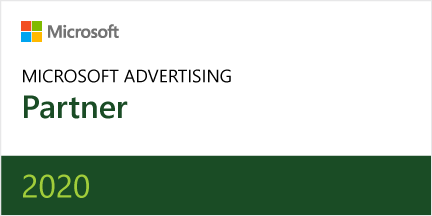Many opportunities are offered by the online world for businesses, including the potential to reach a larger customer base, the ability to use international suppliers, and often being able to save on supply and administrative costs.
However, the online business world also includes the potential for security risks and scams as well.
Information Security For Your Business
Your business contains a lot of sensitive information and data that cyber criminals would really like to have access to. Just think about all of the information that you have stored online, and what the consequences would be if this information was stolen or lost? It could include:
- Patent Applications
- Intellectual Property
- Marketing Plans
- New Business Ideas
- Business Plans
- Financial Records
- Customer Records
- Personal Information
Online Security Risks
If you access the internet using your computer, then it can be vulnerable to different security issues, including:
- Online credit card and payment fraud
- Online scams
- Cyber crimes, like being hacked
- Spam (Adware and Junk Email)
- Malware and Viruses
These types of issues can cause problems both in terms of the usability of your computer- which can have a negative impact on the operations of your business – as well as your customers, since it might put their information at risk also. Making sure that your business uses effective online security procedures can help reduce the chance that you will have these problems.
If your business operates online, uses computer equipment or simply uses email for conducting business, you need to ensure that you as well as your staff utilize the internet in a secure and safe way.
How To Keep Your Business Information Secure
The following are some basic steps you can take to protect your business financial and personal information online. When these steps are followed it will help to ensure that you develop and maintain customer confidence and trust in your business. In order to keep your customer and business information secure and private, you should focus on these key areas:
Business website- Limit staff access to only those employees who need to use it for doing their work and also use a strong admin password.
Domain name server and domain name – For domain name registration, use a private or restricted email account. Also be sure to keep your registration details current.
Communication tools- Make sure that all of your communication tools (instant messaging, text messaging, email) are encrypted. That means that your information will be converted into code before it is sent across the internet. To prevent malicious software and hoax emails, install security software and educate staff on how to use email safely, e.g. not to click on links coming from unknown senders.
Privacy – Destroy, protect and store each piece of information that you obtain from customers, including name, email address, address, telephone number, credit card details and personal opinions in a manner that complies with the 1988 Privacy Act.
Mobile devices – Make sure that the information that is contained in your mobile devices is protected since they can be stolen or lost. You can do this through data encryption, using strong passwords and making use of the latest operating systems, web browsers and mobile security software.
Desktop computers and servers – Your business computers should have security software installed on them. Make sure that it has anti-spam filters, a firewall, anti-spyware and anti-virus software. Servers also need to have anti-virus software, regular updates and a firewall. Monitor your security logs and other server reports for any irregular patterns or changes. Be sure to keep all of your software up-to-date with the most recent security patches and software updates.
Spam filters – Spam filters should be used in order to reduce the number of phishing and spam emails received by your business. If a spam filter is applied, it will help to minimize the chances that you or one of your employees will open a fraudulent or phishing email by mistake.
Back up your data on a regular basis – You should back up your data to help to ensure that none of it gets lost in case there is a hosting failure – like computer hardware problems, being hacked or getting a virus. There are several methods for backing up your data, including using a local server, CDs, saving data to a USB, cloud computing or external hard storage.
Secure online transactions – Provide your customers with a secure way for completing transactions. It is very important that a secure online environment is offered for transactions to secure whatever personal information your business might store. Speak with your payment gateway provider on what can be done in order to help prevent online payment fraud from occurring.
Procedures and policies – Make sure you have some procedures and policies in place for your employees that details what is acceptable when using and accessing the internet, email and IT. Ensure that your employees are familiar with your policies regarding collecting, accessing and storing data, and be sure that they review them on a regular basis. It can also include training employees on the proper procedures for collecting, accessing and storing data.
Regular staff training – It is very important to train your staff on online safety. However, they need to also be aware of what their computer responsibilities and rights are in addition to network access usage. If you train your staff on how to maintain strong passwords, be aware of potential fraudulent emails, and to watch for and report any suspicious online activity, it will help to ensure that your company maintains good IT security practices. Create clear policies for your staff regarding computer use and make sure the policies are given to staff during their orientation training. You might also want to conduct refresher training on the policies to make sure all of your employees are familiar with what your IT security policies are.
Keep in mind that taking online security measures today will not only help protect your customers and your business from any potential threats that exist currently, but against future threats as well.






